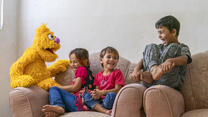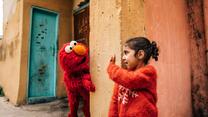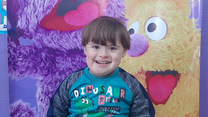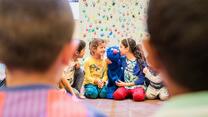Reach Up and Learn is an evidence-based home visiting program which originated in Jamaica and has since been adapted to support caregivers of children 0-3 years old in 18 countries. As part of prioritizing early childhood development in responding to the Syrian refugee crisis, the International Rescue Committee (IRC) adapted this model, and trained refugee and host community workers to conduct regular visits to caregivers of young children, in which they demonstrate simple, homemade toys and play-based activities using contextualized books, puzzles, handmade toys, dolls and local songs. The home visitors model nurturing care, provide supportive encouragement and lend a much needed listening ear to caregivers. The report documents the experience of adapting and implementing this play-based home visiting intervention in a crisis setting and shares stories of community workers and caregivers participating in the program in Jordan, Syria and Lebanon. We are now scaling this intervention to reach even more children and caregivers via the Ahlan Simsim program, a partnership between IRC and Sesame Workshop.
The report demonstrates a positive response from refugee and host community caregivers about the home visiting experience, noting that their children learned new skills and became more social as a result of their participation.
One caregiver in northern Lebanon explained, “At the beginning, I questioned this program thinking, ‘How can a three-year-old learn and have cognitive abilities?’ I kept on repeating and convincing myself that my child will at least enjoy the games if he didn’t gain anything else. But soon enough, I realized I was completely mistaken and that my child is developing his skills, such as completing a task or identifying his relatives’ names. He was also humming along to songs! This program has contributed in the development of my child’s social, emotional, cognitive, and motor skills.”
IRC field teams, with support from the creators of Reach Up and Learn, developed innovative solutions to delivery challenges. For example, the IRC program teams adapted to delivering visits during an acute emergency in Northeast Syria in 2019, piloted delivery of the curriculum through a tablet-based platform in Jordan and tested measurement tools for an upcoming impact evaluation. The program continues to adapt to current needs of communities, and at present, the team is adapting based on the COVID-19 pandemic, adjusting programming to continue reaching caregivers with key messages and activities via WhatsApp, providing them with play-based age-appropriate activities to engage their children at home while in-person programs are not possible.
Two brief videos filmed in northern Jordan bring the program to life through the experience of Anas, a refugee home visitor. This 1 minute video provides a window into Anas’ work and his own family; in this 4 minute video, he speaks with the families he visits about their impressions of the program and how he applies his ECD skills in his own home.



